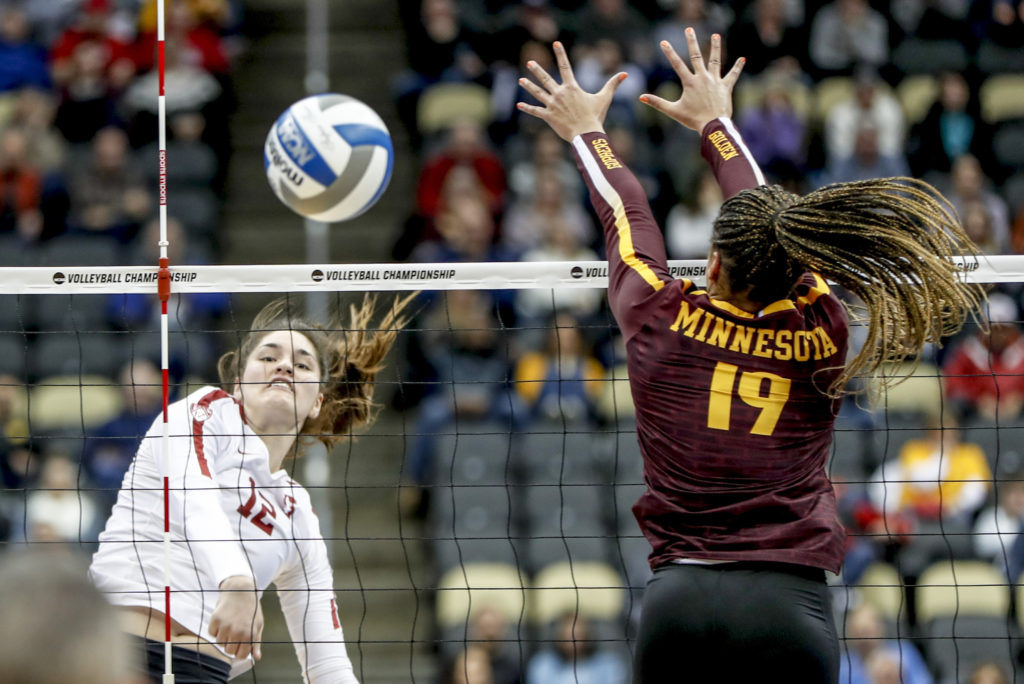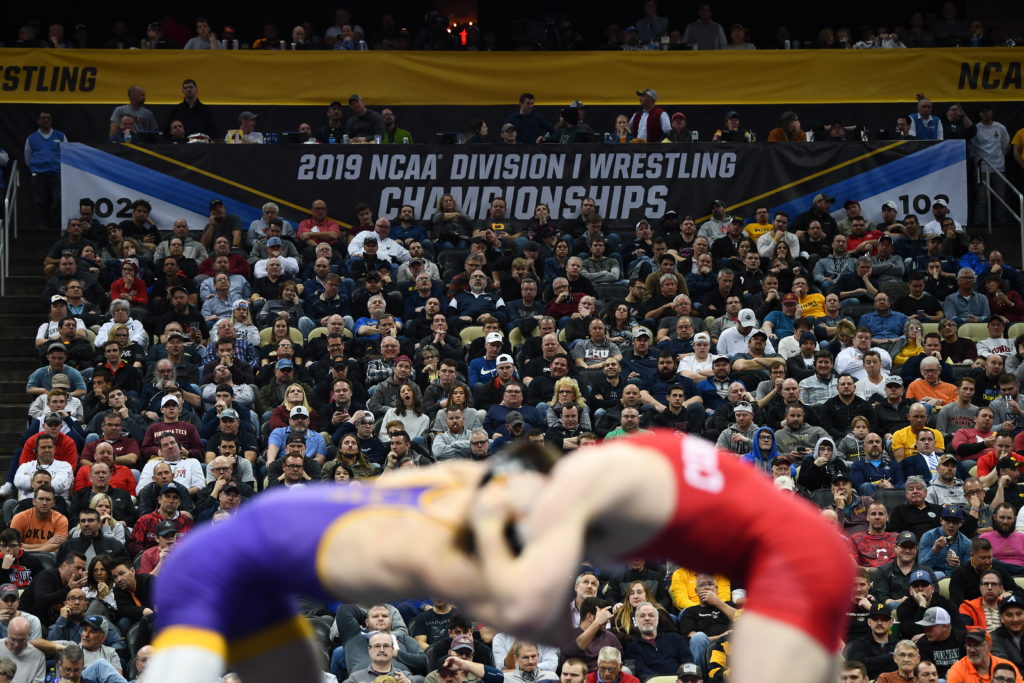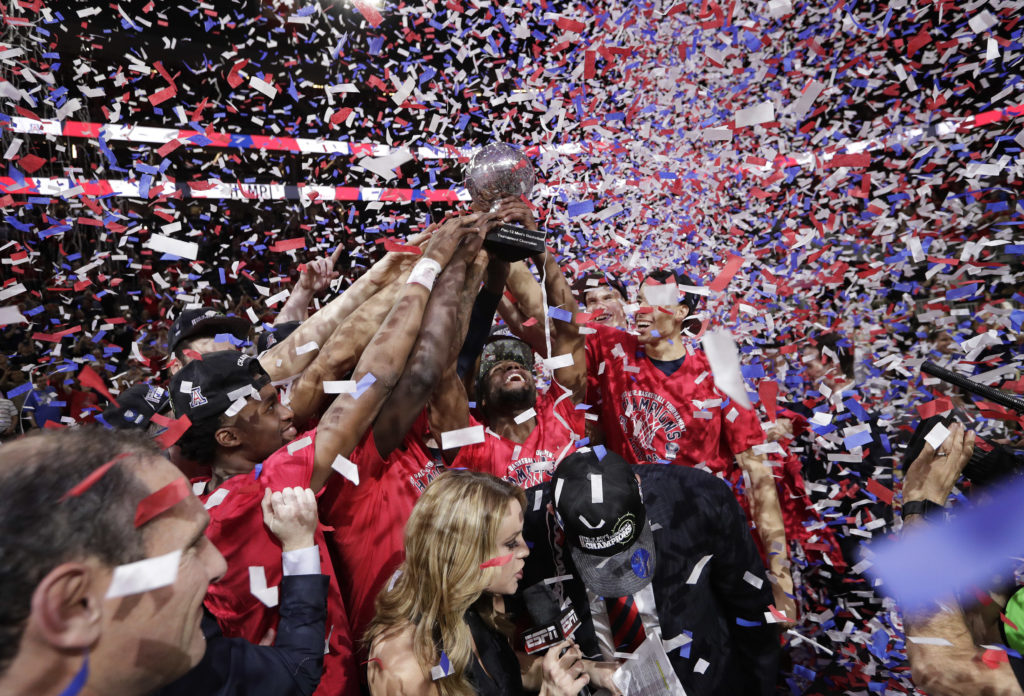NCAA Bid Cycle Comes Down to the Wire
With bids due February 3, the NCAA prepares for interest in more than 500 events
Posted On: January 27, 2020 By :
Things are about to get even more busy for Russ Yurk and his 129 Sports consulting firm.
It is days before the bid deadline closes for the next cycle of NCAA championship events and with more than 500 events up for grabs, it is time for months of groundwork and outreach to pay off with the slew of bid proposals expected.
Yurk, a former NCAA employee, has been tasked with overseeing the bidding process that ends February 3 for cities looking to host any of 86 different championships the NCAA organizes each year across three divisions. That totals more than 500 events when you factor in regional sites across all divisions for the 2022–2023 through 2025–2026 seasons. Once the bid deadline passes, the period of March through September will be used for committee deliberations in each sport, host recommendations and approvals.
Event hosts — an NCAA member institution is required to be part of the bid, even if a local sports commission or CVB takes the lead — will be announced in October 2020.
Third Time is the Charm
For years, the NCAA used to bid out events as they became available. But this cycle marks the third time in the organization’s history that it has put the majority of its championship events out to bid for several academic years all at one time. As a result, Yurk said “destinations have really gotten the recipe down” at what makes a successful bid: Focusing on the student-athlete experience both on and off the field, along with making sure the finances are solid. Despite the interest from cities, there is also outreach done to convince cities that may be hesitant to bid.
“I think there’s an intimidation factor by the logo,” Yurk said at the NCAA Convention in Anaheim, California. “I’ve had many conversations with (bid candidates) where I walk them through and help them understand at the end of the day that putting a championship is actually a very reasonable proposition. You think of the typical team championship where you may have four teams, semis and a final — you’re hosting three games over the course of a couple days. It’s actually very doable and in some ways it’s actually more doable than a large youth tournament where you’re using multiple hotel properties and fields and venues.”
It also comes down to location. Some events such as wrestling and lacrosse will try to grow their brands but not at the cost of venturing too far beyond its strongholds through the Midwest wrestling, and the Mid-Atlantic and East for lacrosse. The national footprint is larger for sports such as Division I women’s volleyball, which has schools with very broad fan bases, and men’s ice hockey, which has been held in markets such as Tampa, Florida, and Anaheim because of the success the National Hockey League has had with putting teams there.

Division II and Division III have the majority of their institutions in the Midwest and East, so you may not see a lot of those championships heading to the Western United States based on travel costs for fans. But while casual sports fans may not think of those events as a big draw, some championships in Division II or Division III could have a bigger economic impact than a Division I event, making it an attractive bid possibility for any sized market.
Las Vegas in the Mix
And when considering lots of markets, one thing new to this bid cycle is sports wagering and the spread of legalized betting in the United States beyond Nevada or New Jersey.
“Our first priority is obviously protecting the student-athlete and the things that may come along with sports wagering,” Yurk said. “On the flip side, that has opened up new markets. Las Vegas absolutely is one of those markets. There are multiple groups within their community that are bidding on championships and I’m honestly speaking with them multiple times a day as they work through the process for the first time.
“Obviously, Vegas being Vegas, they’re targeting some of the larger championships — but they’re also doing a really good job at targeting some of the smaller Division I, Division II and Division III championships where it makes sense,” Yurk added. “A place like Las Vegas, they’re going to do a tremendous job and I can’t explain how excited they are to be a part of the process and I think they’ll be a great partner in this cycle and in cycles to come.”

Yurk also moderated a panel during the NCAA Convention, “Championships Hosting 101: How To Create a Winning Team.” During the panel, he noted that in the last cycle there were 1,765 bid applications for events. But even through that big number, there are always events that have five bids or fewer — and some go without any bids.
“One thing I’ve learned is that people are hesitant to put a bid in because they’re afraid they’ll lose money,” said Holly Sheilley, vice president of athletics for Division III Transylvania University in Kentucky. But, “the championship liaison from the NCAA will work with you on budget items.”
“It can be a recruiting advantage because you can say that you host championships,” said Stanford University Director of Championships Jenny Claypool, whose institution has hosted more than 200 championship events over the past two decades. “It’s an opportunity to showcase your facilities.”
And while budgets are imperative, another kingmaker is facilities. Mike Mulhall, vice president of business development for the Greater Cleveland Sports Commission, recounted that for the 2019 NCAA Fencing Championships, his organization and the NCAA were able to get extra money through the budgeting process to have the championship banquet at the Rock ‘n’ Roll Hall of Fame, “and we gave them a banquet they’ll never forget.”
“If we have a facility, we know we can do all the other stuff around the event to make it fantastic,” said Mulhall, who added that Cleveland will bid for up to 70 events this cycle. “But you have to have a facility that can make it fantastic.”
“It can be a recruiting advantage because you can say that you host championships,” said Stanford University Director of Championships Jenny Claypool, whose institution has hosted more than 200 championship events over the past two decades. “It’s an opportunity to showcase your facilities.”
Claypool pointed out another factor for universities is seeing how coaches feel about a bid. Some would actually prefer that they do not play a postseason at home. Others will be interested in bidding for specific years during a cycle in which they feel they would have a championship-contending program and playing at home would be an added incentive.
Paying Attention
Yurk, meanwhile, will be the guy you see at any sporting event, home or away, that may not be paying close attention to the on-field action since he’s so focused on event preparations.
“I can ruin a trip to a game in a heartbeat,” he said, laughing. “Thankfully my wife also works in sports so I’m able to talk it through and hopefully when I sit down, I can enjoy the contest. But I’m not gonna lie, when I go to a new venue, I’m fascinated by signage, fencing, who made the credentials. I try to compartmentalize it as much as possible, but you may find me taking a picture of a trash can somewhere.”
Posted in: Collegiate Sports, Main Feature